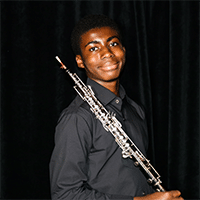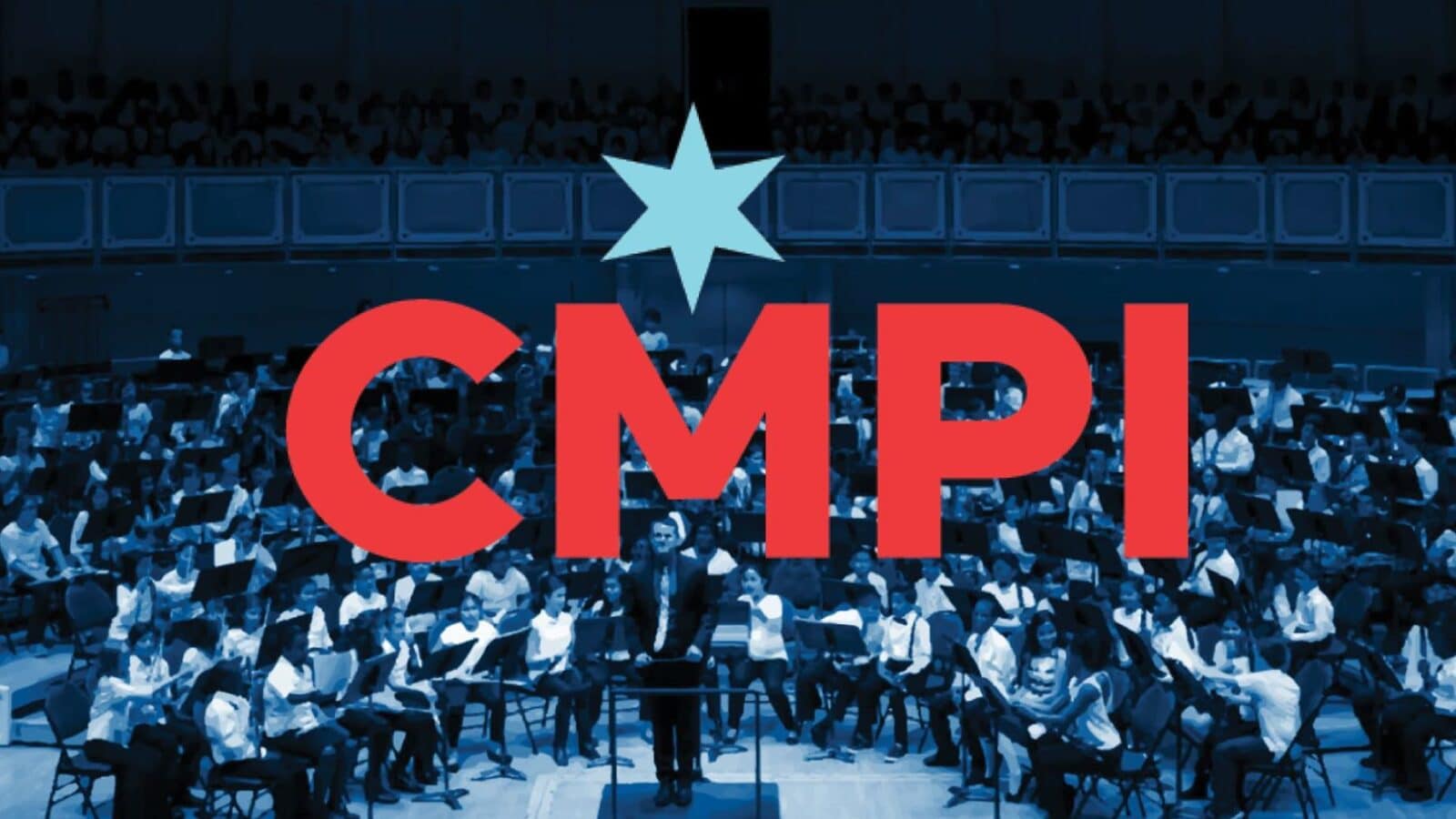
CMPI Oboe Fellow Zachary Allen
CMPI fellows are truly extraordinary, in music and in life, as you will see in this Q & A with Zachary Allen. Zach is a 16-year-old oboist and current sophomore at Niles West High School, whose interview responses offer a wealth of practical wisdom.
Q: How has CMPI helped you in reaching your goals and growing as a musician? Or– What role does CMPI play in helping you reach your short-term goals, and in continuing to prepare you for success in the future?
A: CMPI provides a structure or road map toward the eventual goal of becoming a professional classical musician. I have learned to trust the process. That means putting in the time practicing and prioritizing meeting the obligations outlined in the CMPI handbook. I feel that I have grown so much over the past year and a half since becoming a CMPI Fellow. The support of my mentor and guidance of my family navigator has been amazing. Sometimes I suffer from impostor syndrome and need a pep talk or just someone to listen instead of, there’s always someone available to listen to my concerns. From a financial standpoint, CMPI has provided me with the means to buy a quality instrument and is helping to fund my attendance at the Interlochen Arts Camp in the six-week high school Wind Program this summer.
Q: How do your extracurricular activities, outside of music, help you as a student and musician? What advice would you give to other young musicians like you who are actively engaged in many activities (e.g., with regard to time management, self-care, etc.)?
A: Being in extracurriculars outside of music has really helped me understand the importance of time management. I’ve come to realize that the more free time I have, the more I tend to procrastinate. [The challenge] is trying to maintain a healthy balance and to not over commit. Currently, I am in the CYSO Symphony Orchestra, and in a CYSO chamber wind quintet. I am also a CYSO Ambassador and on its Social Media Team. At school, I am involved in German Club and the Black Student Union and I’m taking all honors and AP classes. Once my school work is complete I have to make sure that I prioritize practicing for the ten hours a week that CMPI requires. I am also a Boy Scout and was hoping to complete my Eagle Scout rank this year but that is one of the things I have had to put on the back burner for a while. I know I’m juggling a lot but so far so good. For me self-care consists of trying to get enough sleep, eating well, and exercising.
I think that being involved in different activities keeps me engaged in the world, especially now, during COVID. Meeting with other people on projects–music-related or otherwise–has made quarantining easier. My advice to other young musicians is to know your limits and set your priorities. I learned my lesson last year when I overcommitted and was in seven different ensembles in four different organizations. By the end of the first semester, I crashed and burned. During my fall CMPI advisory meeting last year I realized that …I have to work smarter not harder. The bottom line is you have to invest in the activities that will give you the most return on your investment.
Q: Congratulations on your recent awards from the American Fine Arts Festival 2020 Stay at Home Competition, and the 2020 International Music Competition Bonn “Grand Prize Virtuoso”! Tell us a little bit about these awards and what you think helped you to achieve them. What thoughts would you like to share with other young musicians who may also be aiming to win in such competitions?
A: First, thank you so much! This is truly an example of what has become my motto, work smarter not harder. I actually had not planned to enter competitions yet. I recorded a video for the Music Institute of Chicago’s fundraising campaign. The video was pretty good, so I decided to post a clip of it on Instagram. I got a positive response, so I entered it in a competition and won 1st place. That is when I realized that every time I have an opportunity to make a recording with an accompanist that I should record it with my phone and keep it just in case. So, every CMPI recital I wear my tuxedo and I record it with my iPhone. I made a list of almost 30 different competitions and if one of the videos I’ve archived meets the criteria, I enter it. This way I [avoid] the stress of preparing for a competition. I prepare for my recitals and take advantage of the opportunity to record live in a concert hall and I just give it my best.
Entering the 2020 International Music Competition Bonn “Grand Prize Virtuoso” was really just me putting it all out there. I had just won first prize in the International Great Composers Competition for the best Saint Saens recording and I wanted to see how the same recording might be received in a larger competition. The Grand Prize Virtuoso 1st prize win in my age group qualified me for an invitation to perform in a winner’s recital at the Beethoven House in Bonn Germany. Unfortunately, due to the COVID travel restrictions, I cannot attend. I applied for the American Fine Arts Festival competition after my last CMPI recital. I had just missed a deadline for another competition that gave winners an opportunity to perform at Carnegie Hall. When I saw that the American Fine Arts Festival also provided winners with the same opportunity, I decided to enter. Next year I will get to perform in the Weill Recital Hall at Carnegie Hall.
My advice to anyone thinking about entering competitions is to first research competitions that you might qualify for, make a list by application date, note the entry fee and details like the required length of the recording, and whether or not your performance needs to be memorized. Then just go for it. My confidence has certainly improved, and I am much more confident in my playing.
We celebrate Zach’s many achievements and are excited to be part of his journey, along with all our CMPI fellows.
